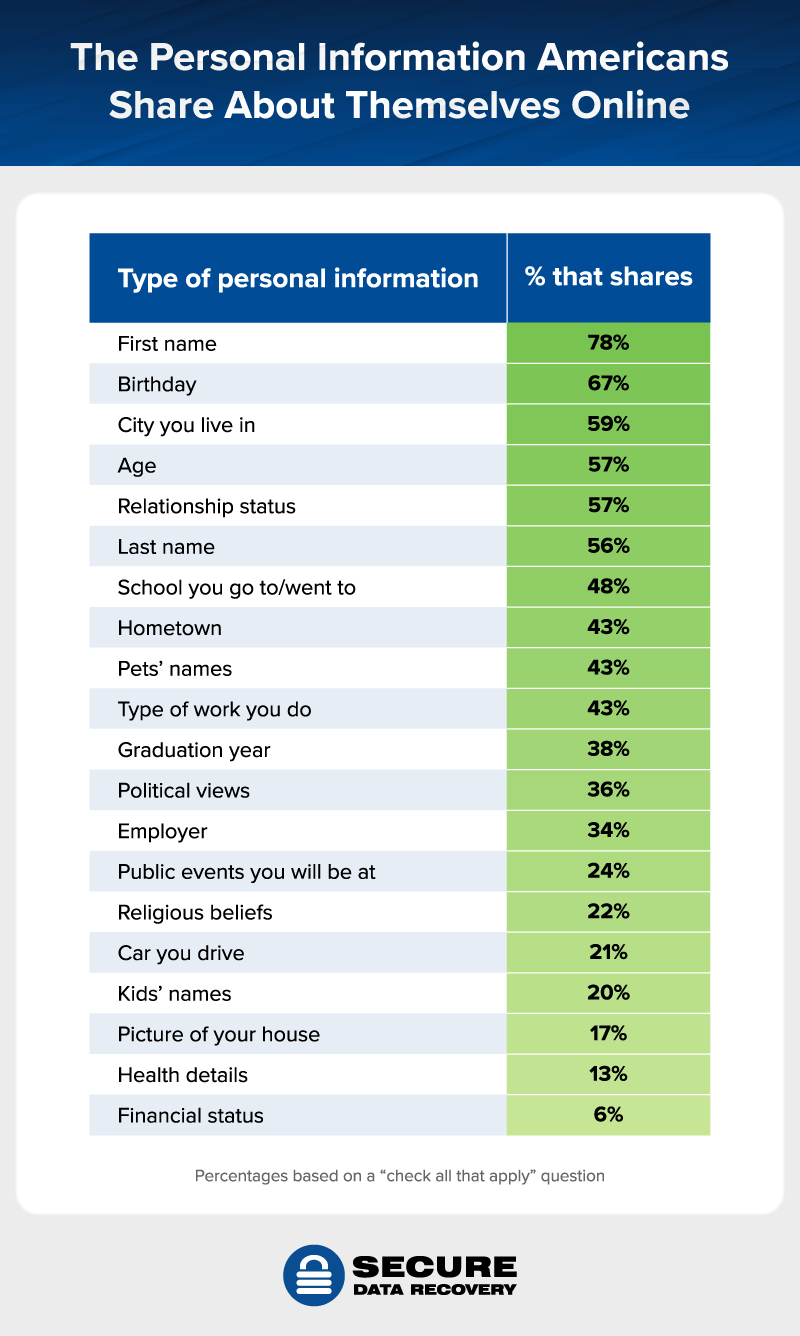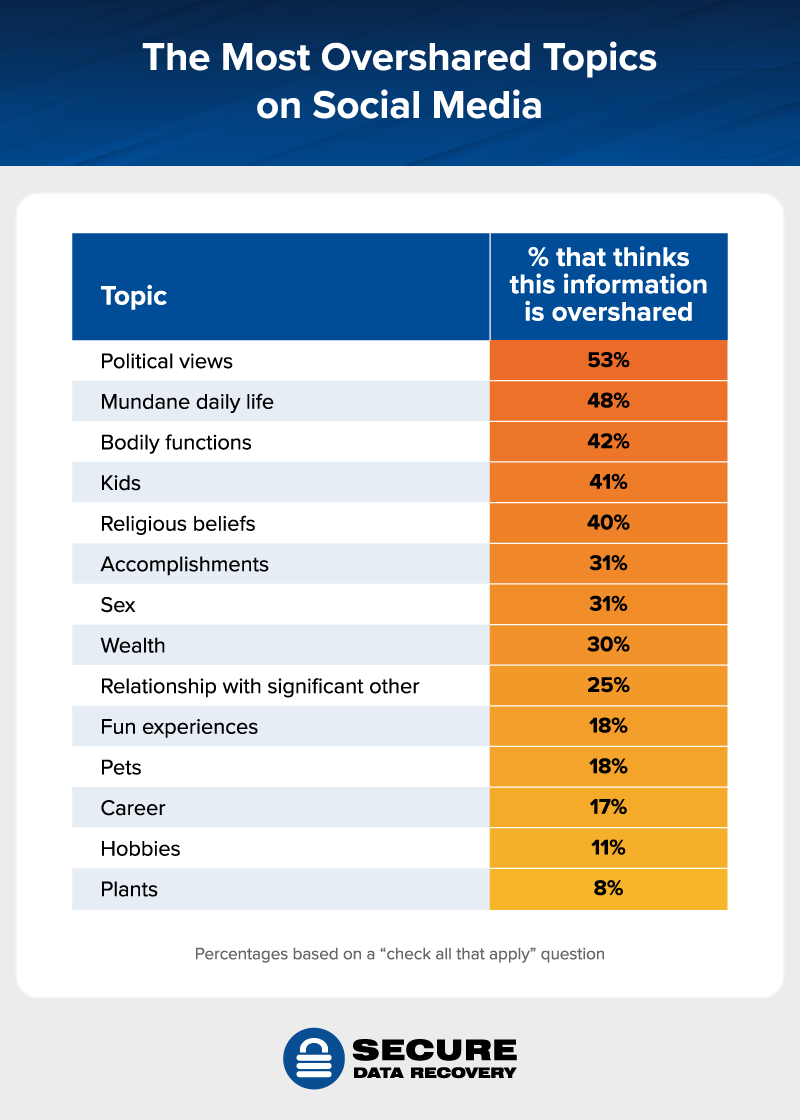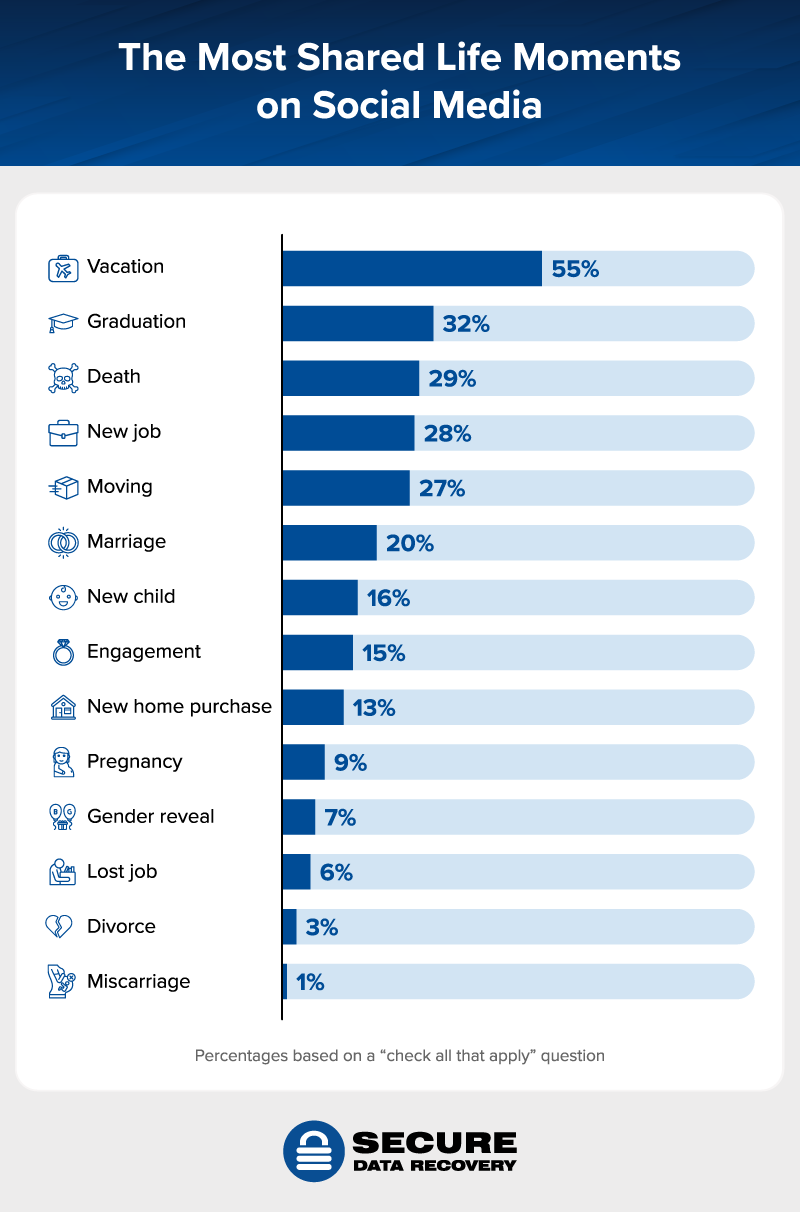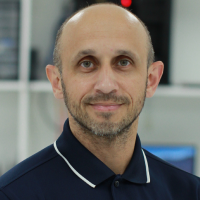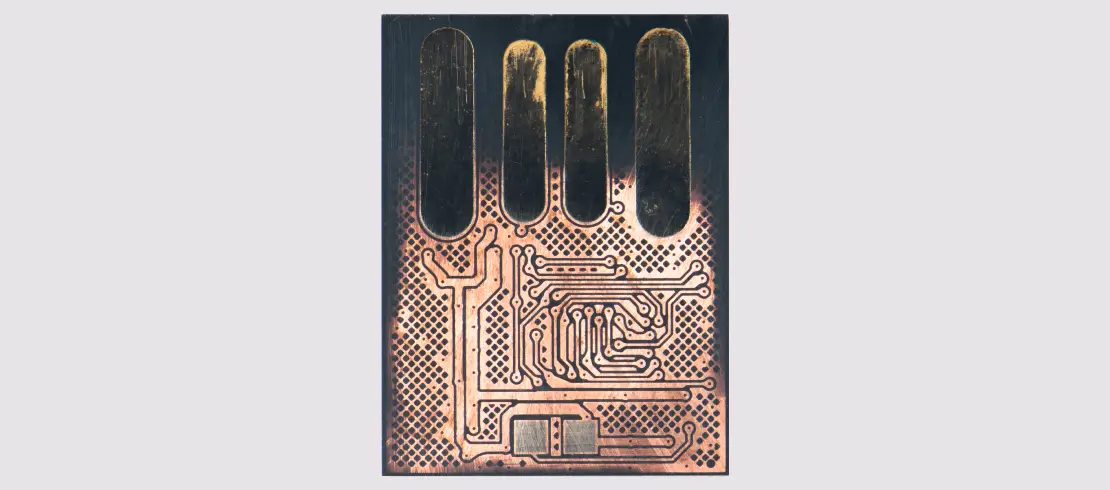Online privacy has been a topic of concern for decades. Despite this, we willingly post a plethora of personal information on social media. Whether it’s your child’s soccer tournament or that stylish #ootd, we all love to share the moments that mean the most to us. But, how much sharing is too much when it comes to online privacy?
From reality TV to social media apps, Americans have a rich history of making their private lives perhaps a little too public despite ever-growing concerns. To find out what types of content people overshare on social media, we conducted a survey to understand Americans’ habits and standards when it comes to posting online. This article reveals what we discovered, and explores what Americans love to share and where they cross the line.
Key findings
- The majority (73%) of respondents don’t personally know everyone who views their posts.
- Close to half (44%) regret something they’ve shared on social media.
- When it comes to politics, 53% agree that people overshare their political views on social media.
- Most people (75%) think that most parents overshare about their children online.
Majority of Americans (73%) say strangers view their posts
Close to half (46%) of America’s population post on social media at least weekly, which means people share a lot of personal information online all the time. So, we wanted to know how many people use the privacy function on social media, a setting that allows users to accept or deny friend requests or followers, giving them the power to know who is viewing their posts.
When asked if they have their social media apps set to private, 24% of our respondents reported not using this privacy setting.
While 76% use the privacy setting for online apps, our survey revealed that not everyone uses it to vet their friend or follow requests. We found that 62% of Americans have accepted a friend request from someone they don’t know, and a majority of that number is from millennials. In fact, millennials (68%) outpace other generations in accepting friend requests from strangers.
Even with privacy settings on social media, a large majority (73%) still report not personally knowing everyone who views their posts. Considering that sensitive information like location (59%) and age (57%) are most commonly overshared on social media, a startling majority could be putting their data at risk.
Because of this risk, 43% worry about revealing too much information online over time without really intending to. Of that percentage, we found that Snapchat (50%) and Instagram (47%) are the apps people are most concerned about revealing too much on.
Politics and bodily functions among most overshared topics
Have you ever gotten annoyed when Uncle Jimmy posts another political rant or your old roommate uploads a picture of every meal? If yes, you’re definitely not alone. The majority of Americans (53%) believe that other people overshare political views the most, followed by mundane daily life (48%) and bodily functions (42%).
However, you can feel free to post all you like of your cute pets, the quilt you’ll finish someday, and your latest gardening escapades. While respondents see too many posts about religion (40%) and other people’s kids (41%), few are annoyed when they see posts of pets (18%), hobbies (11%), and plants (8%).
Death is the third most-shared life event
While vacation (55%) tops our list of most shared life moments, we were surprised to discover that a third of Americans post about death. In fact, our findings tell us that people are just as likely to share about a death (29%) as they are about a new job (28%) or moving (27%).
Other life moments, like losing a job (6%) and divorce (3%) ranked near the bottom of our list, and it made us wonder if people ever regret what they’ve shared on social media. Our data revealed that 44% report regretting something they’ve shared online, and over half (64%) admit to going back and deleting a post. Millennials (52%) have the most regrets over posts followed closely by Gen Z (48%).
Parents beware: Back-to-school photos might display too much information
Of our survey respondents who are parents, the majority (68%) report sharing pictures or making posts about their children at least sometimes. Gen X, who are currently between the ages of 43 and 58, share about their kids online the most (45%) compared to 27% of boomers and 25% of millennials.
However sweet their smile may be, though, the majority of Americans (75%) think most parents overshare about their children online, and they may be right when it comes to safety. Nearly 1 in 3 parents share details about their child’s first day of school, complete with adorable signs reading, “Today is my first day of 4th grade at Riverview Elementary,” and “My teacher’s name is Mr. Rivera.” As adorable as they are, these “first day of school” photos can be risky when posting information that makes it easy to locate your child without your knowledge.
Conclusion
From annoying political rants to memorable photos, Americans tend to overshare on social media. Even if you’re comfortable with how you choose to share online, remember that accounts can be hacked or taken down at any time, so back up your cherished moments.
From phone data or hard drive data recovery to laptop data recovery services, we’re here to help with it all if your information is ever compromised.
Methodology
From January 19, 2023 to January 22, 2023, we surveyed 1,002 Americans across the United States about their social media habits.
Yevgeniy Reznik is Laboratory Operations Manager at Secure Data Recovery Services in Cleveland, Ohio, and has more than a decade of experience as a data recovery engineer. He graduated from Cleveland State University with a degree in computer science and spent 15 years as an IT entrepreneur and small business owner before joining the company.





